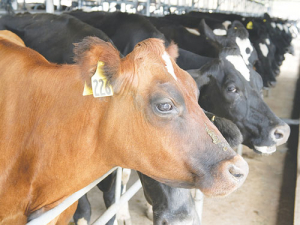Farmers will likely pay a special levy for the M. bovis response, but separately from the increased levy now being proposed by Beef + Lamb New Zealand (BLNZ).
How much the industry will contribute to the M. bovis response is being negotiated by the Government, B+LNZ and DairyNZ under the Government Industry Agreement (GIA) for biosecurity.
The Government will pay 68% of the proposed $886 million cost of eradication over 10 years and DairyNZ and BLNZ will pay 32%.
The levy now proposed by BLNZ will be to cover biosecurity activities but not the M. bovis contribution, BLNZ’s general manager policy and advocacy Dave Harrison told Rural News.
“With this levy we are definitely looking to invest more in biosecurity activities with a view to beefing up the resources for onfarm biosecurity and being more proactive in scanning for offshore threats before they get here.
“But the cost of phased eradication will be met by a separate levy to be determined by the Government, DairyNZ and Beef + Lamb NZ; all those details are now being discussed under the principles of the GIA (Government Industry Agreement).
“There will be a cost to farmers for the M. bovis response but obviously we don’t know what that is yet until the negotiations have finished on what the industry split will be.
“The industry (dairy and beef) will cover 32% of the eradication costs and that will be raised presumably by a separate biosecurity levy or similar. How much that cost will be to farmers depends on what the split is between BLNZ and DairyNZ .
“We are obviously looking at the relative sizes of the industries but also what the impact of M. bovis is expected to be on the individual industries.
“So that is the ongoing discussion at the moment – what the split is, how it will be raised and the time period.”
Agriculture Minister Damien O’Connor has said previously that the full cost of phased eradication over 10 years is reckoned at $886m. Of this, $16m is lost production and is borne by farmers, and $870m is the cost of the response (including compensation to farmers).
Most eradication work will be done in one to two years.



















